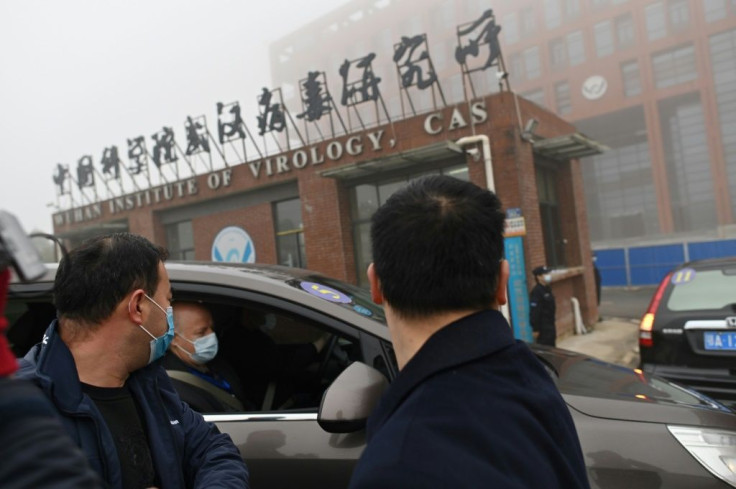New Report Points To COVID-19 Lab Origin? Wuhan Scientists Were Hospitalized In November 2019
KEY POINTS
- The details will add to pressure for a detailed probe on whether virus escaped a Chinese lab
- The new disclosure provides more details than a previously issued report
- The report comes ahead of a meeting of WHO’s decision-making body
A U.S. intelligence report has revealed that three researchers from China’s Wuhan Institute of Virology "became sick enough in November 2019 that they required hospital care." This new information could renew calls from scientists and global leaders for a detailed probe into the origins of the coronavirus pandemic that is still wreaking havoc in several parts of the world.
According to Beijing, the first confirmed case of the virus was reported on Dec. 8, 2019, but many virologists and epidemiologists estimate the SARS-CoV-2 virus began circulating in the country in November of that year.
An investigation conducted by WHO earlier this year to identify the origin of the virus stated that "a laboratory origin of the pandemic was considered to be extremely unlikely." The UN health agency’s report had said there was "no reporting of COVID-19 compatible respiratory illness during the weeks/months prior to December 2019."
The new disclosure provides more details than a previously issued State Department fact sheet, in the final days of the Trump administration, which said several researchers at the lab -- a center for the study of coronaviruses and other pathogens -- became sick in autumn 2019 “with symptoms consistent with both COVID-19 and common seasonal illness,” reported The Wall Street Journal.
But that report, issued January, did not say that the experts had been hospitalized. Crucially, the new details about the number of researchers, the timing of their illnesses, and their hospital visits come ahead of a meeting of the World Health Organization’s decision-making body, which is expected to discuss the next phase of an investigation into the virus origins.
According to the WSJ, current and former officials familiar with the latest intelligence report about the lab researchers have differing views about the supporting evidence for the assessment.
One official said that the intelligence was provided by an international partner and still needs further investigation and additional collaboration, the daily reported. However, another official called the intelligence “stronger.”
“The information that we had coming from the various sources was of exquisite quality. It was very precise. What it didn’t tell you was exactly why they (the researchers) got sick,” he said.
Dutch virologist Marion Koopmans, who was part of the WHO team that traveled to China for the probe, told NBC News earlier this month that some scientists working at the Wuhan lab fell sick in fall 2019. She said China revealed the researchers tested negative for the virus and the evidence did not point to a lab leak.
"There were occasional illnesses because that’s normal. There was nothing that stood out," Koopmans said.
Some scientists had criticized WHO's investigation method in a letter, saying: "A proper investigation should be transparent, objective, data-driven, inclusive of broad expertise, subject to independent oversight, and responsibly managed to minimize the impact of conflicts of interest. Public health agencies and research laboratories alike need to open their records to the public."
China has consistently denied claims that the virus originated in its labs. Officials in Beijing earlier asserted that the virus had originated outside China and might have been imported into the country through frozen food. Faced with blistering international criticism that it withheld important information on the novel coronavirus from other countries and the WHO in the initial days of the pandemic, Beijing also pushed an alternative narrative that the virus on in a U.S. military lab in Fort Detrick, Maryland.
However, most scientists say they have seen nothing to corroborate the U.S. military lab origin theory.
The Biden administration has said that all technically credible theories on the origin of the pandemic should be investigated by the WHO and international experts. "We continue to have serious questions about the earliest days of the COVID-19 pandemic, including its origins within the People’s Republic of China," said a spokeswoman for the National Security Council.
The virus has so far infected nearly 170 million people and killed nearly 3.5 million worldwide.

© Copyright IBTimes 2025. All rights reserved.





















